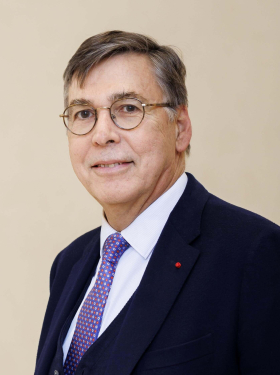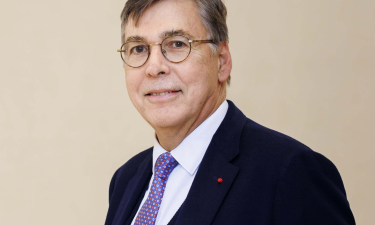Ladies and Gentlemen,
I would like to say a few words in conclusion, without, however, coming back on all that has already been very well developed throughout this conference. The discussions we have just heard inspire me with this image that the SSM is like a tree.
I. The SSM “tree” can rely on its solid roots
First of all, it seems to me that this unprecedented and ambitious Mechanism is now very firmly established thanks to solid roots. These roots stem from the founding texts that we have built, discussed and enforced together, such as the SSM Regulation and the SSM Regulation Framework. In addition, the robustness of SSM regulatory roots also result from (i) their concrete operational implementation and (ii) the way in which SB Chairs and teams have taken over and shaped a solid and demanding system. I would therefore like to pay particular tribute to their work, which has helped to bring a unique Mechanism out of the ground. I will come back to this later.
Like the roots of a vigorous tree, the project has been able to grow and strengthen, nourished by values based on cooperation and pragmatism. SSM teams were able to create a framework of confidence to ensure effective supervision: trust among supervisors and between supervisors and supervised institutions. This environment of trust has provided the basis for building an ambitious and demanding Mechanism. The teams involved in the implementation managed to exchange and adopt best practices in a co-construction spirit. In that view, we can be particularly proud of the way in which the Joint Supervisory Teams –JSTs– operate. These multinational teams are a concrete demonstration of the success of European integration and cooperation. They have truly succeeded in transcending the national visions that might have seemed an obstacle at the outset of the project.
I would add that, in the same spirit of cooperation, the SSM has succeeded in implementing, in a very practical way, a level-playing field across institutions. I can tell you, as a Supervisory Board member that this fair treatment and the sense of proportionality are always at the heart of our discussions and decisions. I believe that this has contributed to establish a high level of credibility for the SSM and has also helped to restore confidence in European banks, which was one of our key objectives.
II. Flexible branches to adapt to future challenges
With its values and roots, the SSM tree has been able to produce flexible and agile branches, enabling it to adapt to crises and anticipate future transformations. The SSM has stood firm: it has weathered the storms without breaking.
In my view, we now have the means and the need to moving towards more risk and cost sensitive supervision. In our view, equal treatment does not mean homogenization of risk analyses, on the contrary. The better we understand the risks specific to an institution and the context in which it operates, the better we are able to apply the right supervisory tools.
The challenges we face today are manifold: digital, technological, climatic. We thus need to ensure that we develop further our effectiveness, efficiency and agility enough to meet the challenges ahead. As illustrated in the discussions this afternoon, the SSM has already taken important steps to that end.
III. SSM teams: the lifeblood of the SSM tree
And I have no doubt that we will be able to meet those challenges together. Indeed, here lies the key to our success so far, and for the future: our ability to act collectively. The SSM's strength lies in having worked from the onset to create what we have called the "one team spirit" by uniting the teams and in fostering quality dialogues and interactions with the supervised entities.
I would therefore like to take this opportunity to extend my warmest thanks to the men and women who work on a daily basis within the SSM. To continue the metaphor, they are the lifeblood, the sap of our common tree: the success of European supervision is largely attributable to them. Here, I would like to pay special tribute to SSM teams for their work. They can be proud of their achievements, their professionalism and the expertise they have developed, which has become a very valuable common base of knowledge. It is therefore important for us to unite this great team even more. This is the whole purpose of the SSM integration project led by Edouard Fernandez-Bollo. I have been very supportive of this initiative, which has already brought the teams closer together and nurtured their sense of belonging to the SSM.
As I said earlier, the SSM also functions thanks to the good relations we have with the banks. I would therefore also like to thank the representatives of the supervised institutions for the mutual trust we have built up together. I am thinking in particular of the risk directorates. In the vast majority of cases, we work in a calm and constructive manner, in the common interest of a more resilient European banking sector. This is an important asset. Given the difficult challenges that lie ahead in the very near future, in Europe and around the world, we will need more than ever to rely on these relationships of trust.
It's now time for me to conclude. I would like to thank you for your attention, both on site and remotely, and to thank the various speakers for the quality of the debates and presentations. Let us continue to work together to ensure that the SSM remains the world-class supervisor that we have built: an asset for a resilient and competitive European banking sector, a token of confidence for European citizens and, last but not least, a support for our common currency and European integration as a whole. Thank you all very much.

